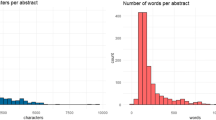Abstract
In this four-part paper I attempt to ‘recover’ the notion of debate as a ‘method’ of philosophical analysis for the international studies. In part one, it is argued that discursive reasoning is indispensable to the task of attempting to say what international relations might consist in. Three reasons are given for this, viz., that there is an important connection between such debates and rationality; that it is a constitutive feature of natural language to want to use it for self-conscious reflections; and that it seems to be the only way of identifying the key concepts in terms of which any theorizing about international relations is to be expressed. Parts two and three are intended to show one of the uses to which discursive reasoning may be put in establishing, beyond a shadow of a doubt, the incoherence of Morton Kaplan's systems epistemology for international relations. Establishing the incoherence of one conception of what international relations consists in will go one step closer towards saying more fully what international relations is. Part four suggests, but does not attempt to make compelling, that an Aristotelian conception of the subject matter is a quite defensible one.
Similar content being viewed by others
References
Carroll, L.: Alice in Wonderland, Modern Library, n.d., New York, p. 181.
Cook, T. I. and Moos, M.: 1952, ‘Foreign Policy: The Realism of Idealism’, American Political Science Review XLVI, 343–356. Morgenthau, H. J.: 1952, ‘Another “Great Debate”: The National Interest of the United States’. American Political Science Review XLVI, 961–988. Tucker, R. W.: 1952, ‘Professor Morgenthau's Theory of Political Realism’, American Political Science Review XLVI, 214–224.
Bull, H.: 1966, ‘International Theory: The Case for a Classical Approach’. World Politics XVIII, 367–377, reprinted in Knorr, K. and Rosenau, J. N. (eds.): 1969, Contending Approaches to International Politics, Princeton University Press, Princeton; Kaplan, M. A.: 1966, ‘The New Great Debate: Traditionalism vs. Science in International Relations’, World Politics XIV, 1–20.
Knorr, K. and Rosenau, J. N. (eds.): 1969, Contending Approaches to International Politics.
Edwards, D. V.: 1969, ‘Review Article’, American Political Science Review LXIII, 134.
Braybrooke, D.: 1972. ‘Comment: Getting the War News Straight’. American Political Science Review LXVI, 825.
Dummett, M.: 1978, Truth and Other Enigmas, Duckworth, London, p. XIX.
Hollis, M.: 1977, Models of Man: Philosophical Thoughts on Social Action, Cambridge University Press, Cambridge, p. 42.
Polanyi, M.: 1974, ‘Genius in Science’, in Cohen, R. S. and Wartofsky, M. W. (eds.), Methodological and Historical Essays in the Natural Sciences, D. Reidel, Dordrecht, Holland, p. 68.
Young, O.: 1972, ‘The Perils of Odysseus: On Constructing Theories of International Relations’, in Tanter, R. (ed.), Theory and Policy in International Relations, Princeton University Press, Princeton, pp. 179–183.
Author information
Authors and Affiliations
Rights and permissions
About this article
Cite this article
Spegele, R.D. Rediscovering debates in the international studies: Morton Kaplan's system epistemology revisited. Theor Decis 14, 293–328 (1982). https://doi.org/10.1007/BF00133677
Issue Date:
DOI: https://doi.org/10.1007/BF00133677




